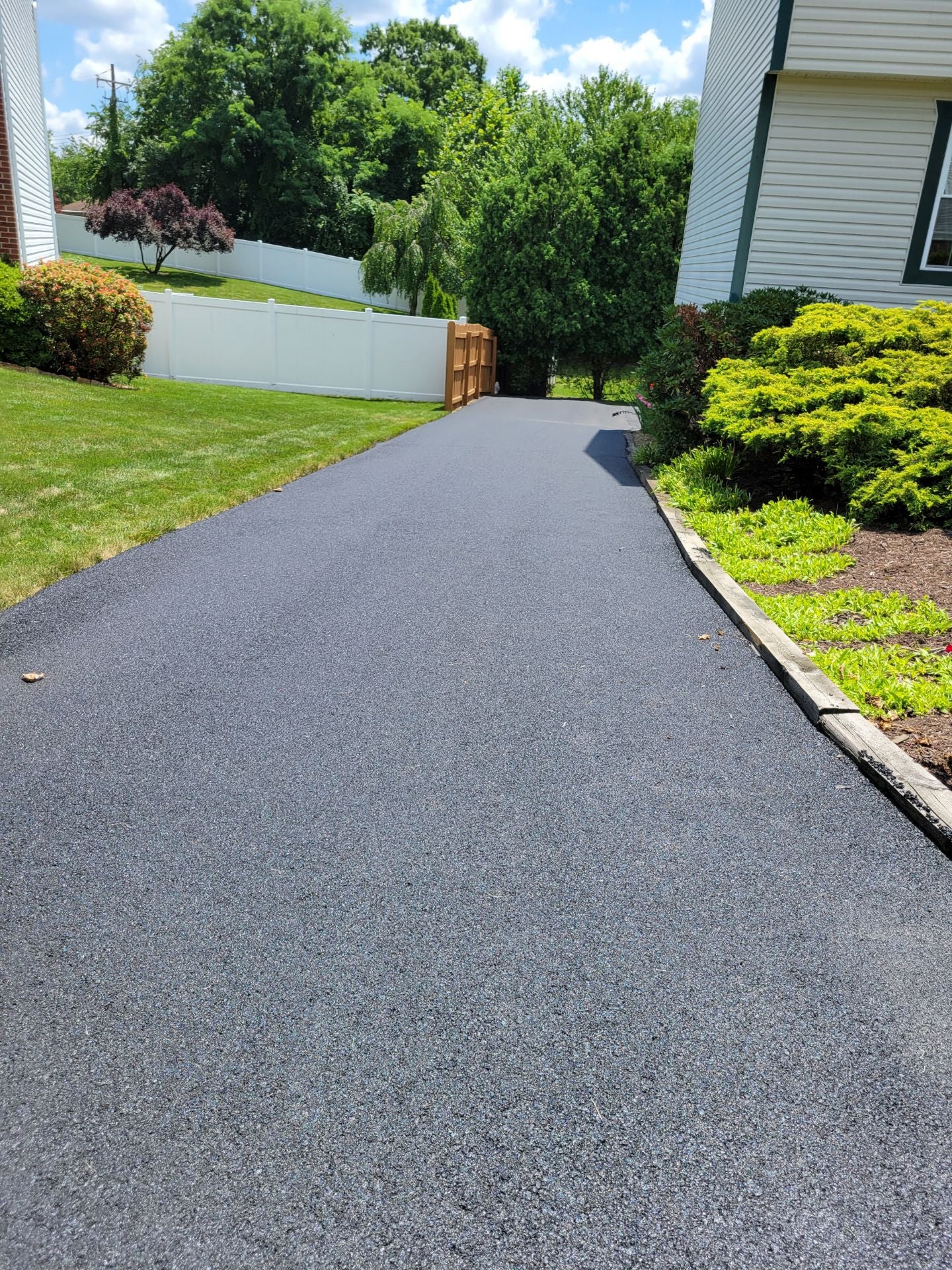Discovering the Various Sorts Of Asphalt Paving and Their Benefits
The landscape of asphalt paving incorporates a range of kinds, each engineered to attend to specific demands and ecological considerations. From the durable characteristics of Warm Mix Asphalt to the environmentally friendly features of Recycled Asphalt Pavement, comprehending these alternatives can considerably affect project results. Advancements such as Cozy Mix Asphalt and Porous Asphalt introduce additional layers of effectiveness and sustainability. As we discover these different paving services, the nuanced advantages they use might surprise you and potentially change your strategy to future paving tasks.
Hot Mix Asphalt
When considering the most effective leading solutions, hot mix asphalt (HMA) stands out as a premier choice for many applications (paving). HMA is a versatile paving product recognized for its durability, flexibility, and total efficiency. It is generated by home heating asphalt binder and integrating it with aggregates at high temperatures, guaranteeing an uniform mixture that can withstand numerous ecological problems
One of the primary benefits of HMA is its capacity to supply a smooth, skid-resistant surface, enhancing safety for lorries and pedestrians alike. In addition, HMA displays outstanding resistance to deformation, making it ideal for high-traffic locations such as highways and vehicle parking lots. Its adaptability to various climates further adds to its extensive use.
The installment process of HMA is relatively fast, enabling efficient task completion with marginal interruption to traffic. In addition, it can be reused, reducing waste and advertising sustainability within the building sector. Generally, hot mix asphalt stays a top option for leading experts as a result of its robust efficiency qualities and lasting cost-effectiveness, making it a reputable solution for different framework requirements
Cozy Mix Asphalt
Warm mix asphalt (WMA) uses a cutting-edge option to warm mix asphalt, providing similar advantages while requiring lower manufacturing temperatures. Usually generated at temperatures between 190 ° F and 250 ° F, WMA modern technology reduces energy intake and greenhouse gas emissions during manufacturing, making it an extra eco-friendly choice.
This adaptability can lead to boosted compaction and total durability of the asphalt surface. Additionally, WMA can be used in various applications, ranging from highways to domestic driveways, without compromising performance.

The incorporation of ingredients or changed binders in WMA adds to its improved residential properties, making sure that it satisfies or surpasses performance criteria. WMA's lowered thermal effect during manufacturing can reduce the possibility of damages to the surrounding atmosphere, making it an appealing selection for lasting paving practices.
Cold Mix Asphalt
Cold mix asphalt is a functional paving remedy typically made use of for temporary repair services and low-traffic areas. This kind of asphalt is generated at ambient temperatures, making it a practical selection for quick repairs and tasks where traditional hot mix asphalt might not be feasible. The mix commonly contains asphalt binder, aggregate, and ingredients, permitting it to remain convenient for an extensive period.
One of the key advantages of cold mix asphalt is its simplicity of application. It can be set up without customized tools, making it available for smaller service providers and DIY lovers. Furthermore, cool mix can be used in numerous weather conditions, which is particularly beneficial for immediate repair work needs.

Cold mix asphalt is additionally cost-efficient, as it permits economical repairs without sacrificing quality. Its adaptability makes it ideal for covering pits, filling cracks, and resurfacing driveways. It might not give the exact same long-lasting sturdiness as hot mix asphalt, its fast application and flexibility make it an exceptional choice for temporary remedies and low-traffic applications. On the whole, chilly mix asphalt remains a practical alternative in the asphalt paving landscape.
(view more)
Permeable Asphalt
Porous asphalt is an innovative paving remedy created to enhance stormwater monitoring and minimize surface drainage. This sort of asphalt features an one-of-a-kind structure that incorporates interconnected gaps, allowing water to penetrate with the surface area and into the underlying layers. By facilitating all-natural drainage, permeable asphalt helps minimize the danger of flooding and lessens the problem on municipal stormwater systems.
Among the primary advantages of permeable asphalt is its capability to boost water high quality. As stormwater filters via the pavement, toxins and sediments are entraped, decreasing the variety of contaminants that go into local waterways. This adds to healthier ecological communities and supports conformity with ecological policies.
In addition, porous asphalt can improve the long life of the pavement itself. By minimizing water accumulation on the surface, it decreases the potential for freeze-thaw cycles that can cause fracturing and wear and tear. The minimized demand for traditional stormwater administration framework can result in price savings for towns and designers.
Recycled Asphalt Sidewalk
(view site)Recycled asphalt pavement (RAP) represents a lasting strategy to roadway building and upkeep that profits both the environment and the economy. By reusing existing asphalt products, RAP lowers the demand for new resources, which subsequently preserves natural deposits and reduces environmental impact. This practice reduces power consumption and greenhouse gas emissions related to the production of new asphalt.
The consolidation of RAP into brand-new pavement mixes can also cause significant cost savings. Professionals can take advantage of recycled materials to decrease overall project expenses, making it an economically viable option for helpful hints municipalities and private programmers alike. In addition, RAP supplies equivalent efficiency features to virgin asphalt, making certain longevity and long life in roadway surfaces.
RAP's flexibility allows it to be made use of in numerous applications, consisting of highways, car park, and household driveways. By boosting the structural integrity of existing sidewalks, RAP adds to improved safety and level of smoothness of roads.
Conclusion
Finally, the varied sorts of asphalt paving each deal unique advantages customized to certain requirements. Warm Mix Asphalt masters resilience and quick setup for high-traffic areas, while Cozy Mix Asphalt enhances sustainability via minimized energy usage. Cold Mix Asphalt works as an affordable choice for immediate repair services, Porous Asphalt effectively takes care of stormwater, and Recycled Asphalt Pavement advertises environmental duty. Collectively, these leading solutions add to efficient, green practices in the building and construction industry.